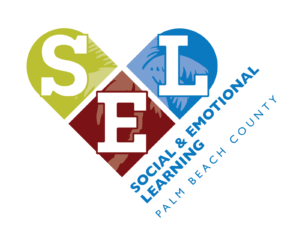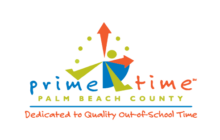9:00 am - 12:00 pm
Over the last 5 years, Prime Time has helped the JASE program become a successful afterschool program in Martin County. We are thankful for the variety of trainings offered, yearly actions plans and multiple site visits.
Afterschool ProfessionalMartin County Parks and Recreation
Restorative Practices in OST Series Part 3 – Restorative Justice Conferences and Change at the Program Level
Participants are REQUIRED TO ATTEND ALL TRAININGS in the series and complete two modeling sessions at their program site and assignments in between trainings.
The program director or assistant director and at least two other staff members are required to attend this training series. (minimum of 3 people per program)
By registering for this training, you are committing to all training session dates and two modeling sessions at your program between training sessions 2 and 3.
- 9/21/21 – Tuesday – 9:00am-12:00pm –Part 1- An Introduction to Restorative Practices and Questions
- 10/5/21 – Tuesday – 9:00am-12:00pm –Part 2- Proactive and Responsive Circles
- 10/19/21 – Tuesday – 9:00am-12:00pm –Part 3- Restorative Justice Conferences and Change at the Program Level
CEUs: Prime Time is authorized by IACET to offer 1.4 CEUs for the completion of this training series. Click here to learn more here.

In order to earn CEUs, participants must meet the following requirements: complete all assignments satisfactorily, attend all sessions of the training series, miss no more than 15 minutes of total training time, actively participate in the trainings with their video on and pass the post quiz with a score of 70% or higher.
Do you want to create a culture of care in your program where youth learn conflict resolution through a structured process that supports all youth to have an equal voice and develop important social and emotional (SEL) skills?
Research on restorative practices in school and afterschool settings has shown significant improvement in behavior and program climate as support is given to youth who get in trouble to help them gain skills to change their behavior. Often, troublesome youth are stuck in a pattern of behavior and they don’t know how to change.
During this three-part training series, you will learn how to create and sustain an out of school time space where youth are taught to learn from their mistakes and repair harm done instead of isolating and punishing youth. Modeling and technical assistance on how to run Restorative Circles/Conferences will also be provided between training sessions.
The goal of this training series and cohort model will be for OST programs to move towards becoming more restorative in their discipline practices through implementing a plan that involves all stakeholders. Learn how to shift the climate and culture of your program in a sustainable way to promote authentic dialogue, equity of voice, and a true sense of belonging for youth, staff and families.
An Introduction to Restorative Practices and Questions
Training Objectives
Participants will:
a. Discuss the differences between traditional disciplinary models in afterschool programs and restorative practices in discipline.
b. List the basics of Restorative Practices.
c. Practice affective questions, affective statements, and restorative questions.
Proactive and Responsive Circles
Training Objectives
Participants will:
a. Compare the features of proactive and responsive/restorative circles.
b. Practice using responsive circles for problem- solving in a program.
c. List the components of a restorative justice afterschool conference.
Restorative Justice Conferences and Change at the Program Level
Training Objectives
Participants will:
a. Review the Conference Facilitator’s Script
b. Practice steps for preparing and facilitating Restorative Justice Conferences with youth.
c. Develop a plan for implementing Restorative Practices in their afterschool program.


